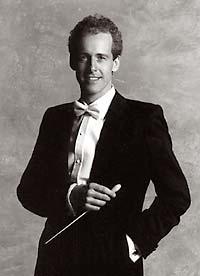
On September 15, [Paul] Daniel stepped into the pit to conduct Wagner's Flying Dutchman, his first show as music director. The next morning Dennis Marks, the general director, walked out in a row over funding. Suddenly, Daniel was running the operation solo. But there was worse to come. In the first week of November, at half an hour's notice, he was called into the office of the then culture secretary, Chris Smith, and told that the government wanted "ENO and the Royal Opera to merge", with ENO moving into Covent Garden.
"I left him politely, but in shock," says Daniel, who now thinks it was a deliberate move to summon him alone and at short notice. "Where was the chairman and where was everyone else? It was very interesting to be called in on your own, between performances.
"I came out of the meeting in deep shock, starting to get very agitated, talking to people on the board. The department of culture called me up at home and told me to calm down. Then I was summoned to go on to the Today programme the next morning. This really hurt. I hadn't even had a chance to tell the company what was going on."
That night, deeply troubled as he conducted the last half hour of Janacek's From the House of the Dead, it suddenly occurred to him what he had to do. At the curtain call he shushed everyone up and made an impassioned speech to the audience, urging them to write to him, their MPs, anyone, to keep ENO independent.
The Guardian, abril 22 de 2005 - clic aquí para ir al artículo
Este es un ejemplo de lo que muchas veces implica el liderazgo institucional. En este caso la institución es una compañía de ópera (English National Opera). El verdadero líder de una orquesta debe estar dispuesto a hacer lo necesario por salvar su entidad, sus músicos y preservar un servicio para la comunidad. Hace tres años salió una película llamada Taking Sides -en español fue traducida como La caída de un imperio. En el film se presenta a una Alemania destruída después de la guerra en donde los distintos ejércitos están adelantando el proceso de de-nazificación, es decir, tratando de entender quiénes eran nazis convencidos e involucrados en la guerra para enjuiciarlos y/o negarles cualquier oportunidad en la nueva Alemania. La película se centra en la investigación a Wilhelm Furtwängler quien fue director de la Filarmónica de Berlín durante la guerra. Si bien la película es en su mayor parte ficción, invita a pensar en el rol que tiene un director de orquesta en la sociedad.
Me pregunto si la Filarmónica de Bogotá evaluó el papel que jugó Irwin Hoffman durante la liquidación de la Sinfónica de Colombia y me pregunto si Hoffman defenderá la independencia de la orquesta ahora que se vuelve a insistir en la fusión de la Orquesta con el IDCT en el proceso de reforma a la administración distrital.

Comentarios